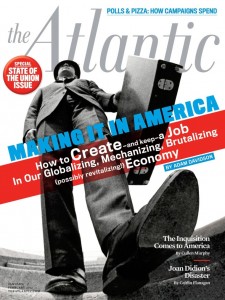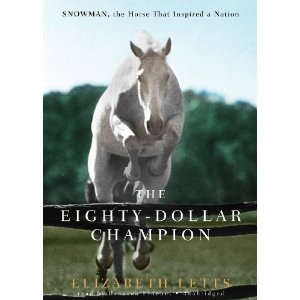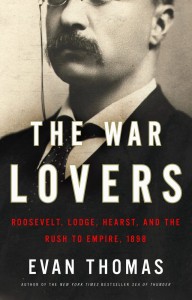Declining Industries on Declining Industries
Call me idiosyncratic, or nostalgic, or foolish. It’s true – I am. I subscribe to The Atlantic. It read it, too, and increasingly I ask myself “why?” 
Magazines like The Atlantic used to popularize complicated intellectual or political issues, framing them in ways that nearly anyone could grasp. More than time-fillers while waiting for the dentist, these middlebrow publications piqued curiosities and gave the reader a sense of broader understanding about the world. The daily paper might keep on up-to-date, but middlebrow magazines kept one informed.
It’s been a while since an issue of The Atlantic gave me any real sense of being informed. Ten issues at the newsstand sets you back $59 and a subscription runs to $24. Even with the discount, it is worth the time?
The January/February issue is an odd mishmash, a well laid-out assembly of pieces that lack a recognizable shared point of view. The short pieces are not memorable and beg the question: does one read a magazine for snippets? Too much theme and it’s tiresome; too random and it does not make sense. Strength in such a publication has to come from the longer articles, where perspective, depth and sheer journalistic wisdom drawn in the reader. No heft in the features and a magazine fails. The irony for this issue is that question at the core of the issue is working in America.
The cover article is on jobs – who makes what – using Standard Motor Products, a manufacturing company in Queens, NY, with a factory in Greenville, South Carolina, as the lens with which to look at a larger question. Maddie Parlier, an employee in the factory, is the lens that makes the challenges real. Maddie’s job is low-skill, though still requiring attention and thought. The factory makes injectors and it is more efficient for them to be made by hand for the near future. However, as technology continues to improve, the price of the machine that can make the pieces will drop, making Maddie uneconomical. The long-term trend for many other low-skilled workers, the author notes, is equally grim. It is not viable. The article is solid, but not particularly perceptive. It does not give a broad picture or tug at our hearts.
The other lengthy piece in this issue is a feature on John J. Mearsheimer. Who? The article’s teaser is “The political scientist’s start has fallen in recent years, as critics have branded him an anti-Semite. But his doctrine of “offensive realism” provides what could be the wisest strategy for managing China’s rise. OK, but who is engaged by this? I’m up on political scientists and the idea that Mearshimer’s start, rising or falling, would be the cornerstone of an article in the popular press is odd at best. The article recounts Mearshimer’s waning and waxing influence as one might look at a musician’s career, breaking into pop stardom for a while and then touring for an audience that wants more of the same. But who is invested? Only three people come to mind: Mearshimer, Robert D. Kaplan, who wrote the piece, and the editor. And of the three, the only one I can see it really mattering to is Kaplan. The article does a poor job making itself seem relevant.
Weird articles and odd magazine. If it was a low-skilled worker, I wouldn’t bet on its future.


